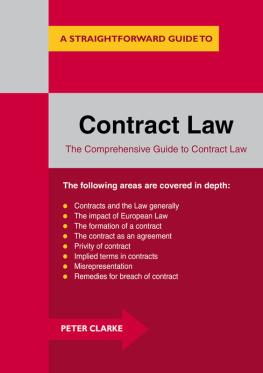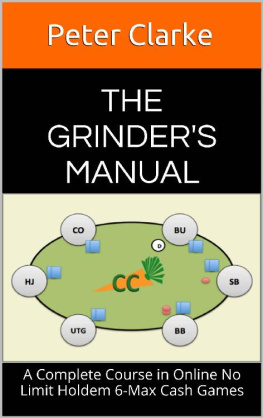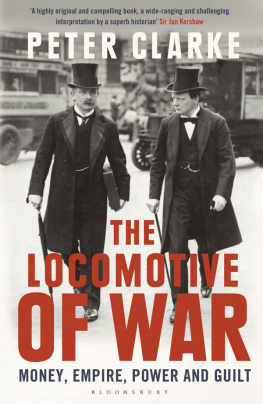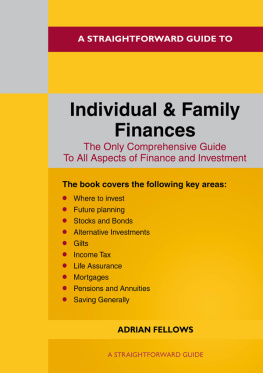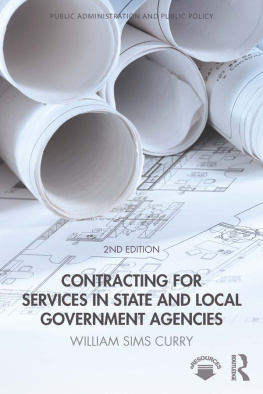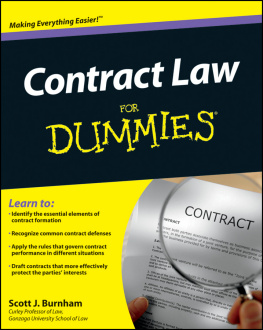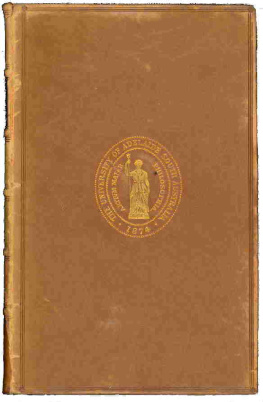Peter Clarke - Contract Law: A Straightforward Guide
Here you can read online Peter Clarke - Contract Law: A Straightforward Guide full text of the book (entire story) in english for free. Download pdf and epub, get meaning, cover and reviews about this ebook. year: 2014, publisher: Straightforward, genre: Romance novel. Description of the work, (preface) as well as reviews are available. Best literature library LitArk.com created for fans of good reading and offers a wide selection of genres:
Romance novel
Science fiction
Adventure
Detective
Science
History
Home and family
Prose
Art
Politics
Computer
Non-fiction
Religion
Business
Children
Humor
Choose a favorite category and find really read worthwhile books. Enjoy immersion in the world of imagination, feel the emotions of the characters or learn something new for yourself, make an fascinating discovery.
- Book:Contract Law: A Straightforward Guide
- Author:
- Publisher:Straightforward
- Genre:
- Year:2014
- Rating:3 / 5
- Favourites:Add to favourites
- Your mark:
- 60
- 1
- 2
- 3
- 4
- 5
Contract Law: A Straightforward Guide: summary, description and annotation
We offer to read an annotation, description, summary or preface (depends on what the author of the book "Contract Law: A Straightforward Guide" wrote himself). If you haven't found the necessary information about the book — write in the comments, we will try to find it.
Contract law is a very complex area, one that affects us all, in one way or another. Quite often we find ourselves in need of clear advice, which isnt available. However, this latest edition of A Straightforward Guide to Contract Law provides clear and comprehensive answers to all aspects of contract law and the formation of contracts. The book is concise and clear and updates the law to 2014.
Contract Law: A Straightforward Guide — read online for free the complete book (whole text) full work
Below is the text of the book, divided by pages. System saving the place of the last page read, allows you to conveniently read the book "Contract Law: A Straightforward Guide" online for free, without having to search again every time where you left off. Put a bookmark, and you can go to the page where you finished reading at any time.
Font size:
Interval:
Bookmark:
Peter Clarke
www.straightforwardco.co.uk
Straightforward Guides
Straightforward Publishing 2014
All rights reserved. No part of this publication may be reproduced in a retrieval system or transmitted by any means, electronic or mechanical, photocopying or other wise, without the prior permission of the copyright holder.
British Cataloguing in Publication data. A catalogue record is available for this book from the British Library.
ISBN 978-1-84716-476-6
978-1-84716-530-5 (ebook)
Printed in the United Kingdom by Grsovenor Press London
Cover Design by Bookworks Islington
Whilst every effort has been made to ensure that the information in this book is accurate at the time of going to print, the author and publisher recognise that the information can become out of date. The book is therefore sold on the understanding that no responsibility for errors and omissions is assumed and no responsibility is held for the information held within.
This latest book in the Straightforward Guides Series, Guide to Contract Law is a comprehensive and easy to understand introduction to the complex area of contract law.
Many people, either knowingly or unknowingly, enter into contracts without fully understanding the implications of what they are doing. Contracts can cover a number of areas, from hire purchase agreements to more complex finance agreements, contracts for construction of buildings, contracts for work around the house or contracts to supply goods.
Notwithstanding the type of contract or what area of life it relates to, there is a comprehensive framework of law, both in statute and also common law, which covers parties to a contract. This book will enable the reader, whether layperson or professional, to obtain the basic facts about contract law and also to see clearly where they stand in relation to their rights and obligations. Throughout the book there is reference to relevant court cases.
Contract law is necessary because the law only enforces certain types of promises, basically those promises that involve some sort of exchange. A promise for which nothing is given in return is called a gratuitous promise, and is not usually enforceable in law (the exception being where the promise is put into some sort of document, usually a deed).
The main reason that we need contract law is because of the complex society we live in, a capitalist society. In capitalist society people trade freely on many different levels. There are many complex interactions, from small business endeavors to massive projects, such as construction projects where binding agreements are essential.
Contract law is there to provide a framework to regulate activities. Contract law will rarely force an individual or company to fulfill contractual promises. What it does do is to try to compensate innocent parties financially, usually by attempting to put them in a position that they would have been in if the contract had been performed as agreed.
Contract law, or the origins of contract law, goes back more than three hundred years. However, because of the very fast innovations in technology and the industrial revolution generally, the main body of contract law was established in the nineteenth century. Before that, contract law barely existed as a separate area of law.
Before the nineteenth century there were many areas of life where free negotiation was not an issue. Activities such as buying goods and then selling them on in the same market were illegal and were criminal offences. There was a basic right to a reasonable standard of living and no one was expected to negotiate that standard for themselves.
A similar, though less humane approach was taken to relationships between employer and employee, or master and servant as they were then called. Today, we all expect to have an employment contract detailing hours of work, duties and pay. This is the most basic of perceived rights. We may, in most cases, not be able to negotiate the terms, but at least it is a contract. In a status society (as it was called), employment obligations were quite simply derived from whether you were a master or a servant: masters were entitled to ask servants to do more or less anything, and an employee who refused would or could face criminal sanctions. Employers had less onerous obligations that could sometimes include supplying food or medical care. Both sets of obligations were seen as fixed and non-negotiable.
Along with the development of contract law within a rapidly changing laissez faire society, came a rapidly changing political consciousness. The view arose that society was no more than a collection of self-interested individuals, each of whom was the best judge of their own interests, and should as far as possible be left alone to pursue those interests.
This laissez faire approach gave birth to the law of contract, as we know it, in that, as we have seen, where people make their own transactions, unregulated by the state, it is important that they keep their promises.
Its origins in the laissez faire doctrine of the nineteen-century have had enormous influence on the development of contract law. The most striking reflection of this is the importance traditionally placed on freedom of contract. This doctrine promotes the idea that since parties are the best judges of their own interests, they should be free to make contracts on any terms they choose-on the most basic assumption that no one would choose unfavorable terms. The courts role is to act as umpire holding the parties to their promises, not to ask whether the bargain made was a fair one.
However, there are many problems with the freedom of contract:
Inequality of bargaining strength between the two parties
The acceptance of implied terms
The use of standard form contracts
Statutory intervention to protect consumers; and
The obligation to implement EU law.
Over the years, courts have moved away from their reluctance to intervene, sometimes through their own making sometimes through parliament, notably the Unfair Contract Terms Act 1997.
Traditional contract law lays down rules that are designed to apply in any contractual situation, regardless who the parties are, their relationships to each other and the subject matter of a contract. The basis for this approach is derived from the laissez-faire belief that parties should be left alone to make their own bargains. It was thought that the law should be required simply to provide a framework, allowing parties to know what they had to do to make their agreements binding.
This framework was intended to treat everyone equally, since to make different rules for one type of contracting party than for another would be to intervene in the fairness of the bargain. As a result the same rules were applied to contracts in which both parties had equal bargaining power as to those where one party had significantly less economic power, or legal or technical knowledge, such as a consumer contract.
This approach, often called procedural fairness, or formal justice, was judged to be fair because it treats everyone equally, favoring no one. There are, however, big problems inherent in this approach in that, if people are unequal to begin with, treating them equally simply maintains the inequality.
Over the last century the law has, to some extent at least, moved away from procedural fairness, and an element of substantive fairness, or distributive justice has developed. Substantive fairness aims to redress the imbalance of power between parties, giving some protection to the weaker one. For example, terms are now implied into employment contracts so that employers cannot simply dismiss employees without reasonable grounds for doing so. Similar protections have been given to others, such as tenants and consumers.
Font size:
Interval:
Bookmark:
Similar books «Contract Law: A Straightforward Guide»
Look at similar books to Contract Law: A Straightforward Guide. We have selected literature similar in name and meaning in the hope of providing readers with more options to find new, interesting, not yet read works.
Discussion, reviews of the book Contract Law: A Straightforward Guide and just readers' own opinions. Leave your comments, write what you think about the work, its meaning or the main characters. Specify what exactly you liked and what you didn't like, and why you think so.

